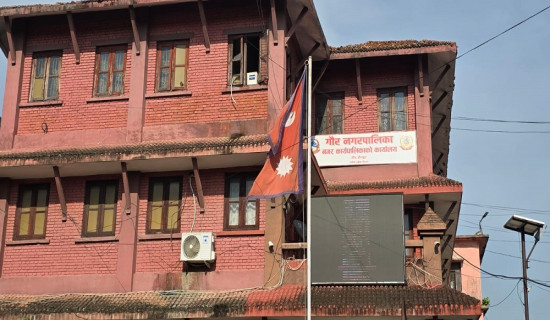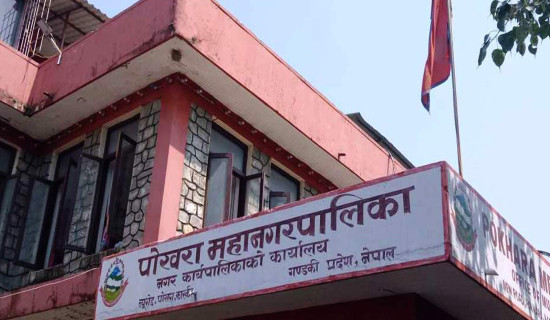- Tuesday, 23 December 2025
Migrants stranded in Mexico try to restart life
Tijuana, Mexico Feb. 12: Margelis Rodriguez and her two children took selfies on their flight to Tijuana, showing off the T-shirts she had custom-made to mark what she expected to be her family's life-changing moment.
On the back of the shirts were their names and the flags of the six countries they passed through in 2024. On the front between the flags of her native Venezuela and the United States, was written in Spanish: "Yes it was possible, thank God. The wait was worth it. I made it!!"
The celebratory words now sting — driving home how close they came without making it and how precarious their lives are with their future more uncertain than ever, Rodriguez said while standing near the tent her family lives in at a shelter in Tijuana, a block from the towering wall marking the U.S. border.
The family is among tens of thousands of people who had appointments into February, many of them left stranded in Mexican border cities after President Donald Trump took office. As part of a broader immigration crackdown, his administration quickly canceled all appointments people had made through a U.S. government app. Under the Biden administration, the CBP One app facilitated the entry of nearly 1 million people since January 2023, and supporters say it helped bring order to the border and reduced illegal crossings.
U.S. Customs and Border Protection estimates about 280,000 people were trying to get appointments each day, many of them after traveling to Mexico, the only country where the app worked. Now they face the daunting question of what to do next.
Some returned home. Others left shelters vowing to cross the border illegally. The Rodriguez family appears to capture the prevailing mood: Stay put and see how Trump's policies unfold over the next few months.
Rodriguez flew to Tijuana with her 12-year-old son and 6-year-old daughter on Jan. 19, the day before Trump was sworn in. She never worried the change in administrations would affect their Jan. 21 appointment. A Venezuelan friend in Chicago had a job for her at a factory, a place to live and a school for her children.
She cried when the notification popped into her email. "It felt like being punched," she said. But she still went to the port of entry with her children at 5 a.m. and waited seven hours, hoping to be called. They never were.
It has been over a year since they left their hometown of Tumeremo in a region plagued by violence and gang feuds tied to illegal gold mining in the remote, mineral-rich area near the borders of Guyana and Brazil. Rodriguez said gangs increasingly controlled life there, including by shuttering her children's school periodically and hiding in people's houses.
She and her family left with her friend and the friend's 16-year-old son, taking buses and walking 2 1/2 days through the rugged Darién Gap. They spent nine months in Pachuca, outside Mexico City, where Rodriguez, 38, found jobs at a tortilla shop, butchery and then caretaking while waiting for their CBP One appointment.
Nearly all the money she earned was spent on the trip to Tijuana. She doesn't have the $1,200 needed to return to Pachuca.(AP)

















